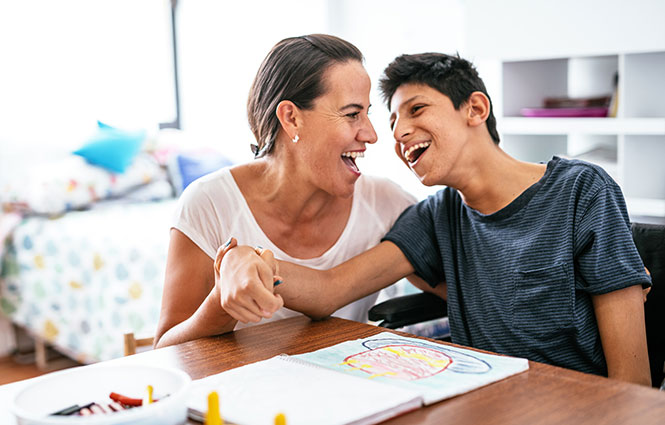
What is guardianship?
Guardianship is a legal process in which a person’s rights are delegated to someone else to act on their behalf. This is a protective measure for individuals who cannot make decisions, cannot communicate decisions, or cannot act in their own best interest.
These vulnerable people may be:
- A person with an age-related decision impairment;
- A person with a traumatic brain injury;
- A person with a significant developmental or intellectual disability; or,
- A person with a substance abuse or mental health issues.
Guardianship and incapacity must be determined through a judicial procedure when a person lacks capacity to manage some or all of their property or to meet essential health, safety, or welfare requirements. If determined to be incapacitated, the court may delegate the persons rights to a guardian to act in the persons best interest while maximizing the person’s independence. Guardianship is a last resort. All other alternatives to guardianship should be explored.
The intent of guardianship is to better protect the incapacitated person while preserving the person’s rights.
Guardianship is a last resort. What are the alternatives to guardianship?
- Power of Attorney
- Durable Power of Attorney
- Proxy for Healthcare Decisions
- Designation of Health Care Surrogate
- Money Management Strategies
- Social Security Representative Payee and Veteran’s Benefit Fiduciary
- Revocable Trust (a/k/a Living Trust)
- Community Care and Case Management
- Voluntary Guardianship
- Supported Decision-Making- Supported Decision-Making can be formalized in an agreement where you detail the areas in your life that you would like support in making your decisions. In the agreement, you can say who you want to support you in each area, and how you do and do not want to be supported. You have the right to make choices. You can ask for support to make your decisions. https://disabilityrightsflorida.org/disabilitytopics/disability_topic_info/what_is_supported_decision_making
- Guardian Advocacy- Guardian Advocacy is a legal process through which parents, family members, or friends of individuals with a developmental disability can obtain the legal authority to act on the individual’s behalf. Guardian Advocate appointments are governed by section 393.12 of the Florida Statutes.
- Eldercaring Coordination-s. 44.407, F.S. – Elder-focused Dispute Resolution Process. A dispute resolution process specifically created for families experiencing conflict regarding the care, autonomy and safety of older adults. Families acquire the tools they need to communicate more effectively, reinforce the elder’s “voice,” and embrace their individual strengths. https://www.flcourts.gov/Resources-Services/Alternative-Dispute-Resolution/Eldercaring-Coordination
Who can be appointed guardian?
That is a legal question, but generally, a family member is preferred. If they are not available, willing, or appropriate, a Public Guardian or Professional Guardian could be appointed. Public Guardians serve individuals who do not have sufficient resources to pay for services. Professional Guardians may be appointed and compensated from the assets of the person they serve.
Looking for more information?
The Florida Bar has a helpful brochure on guardianship that answers many questions.
Our Member Directory can help you find a professional guardian, attorney or other professional in your area who can answer questions for your circumstance.
